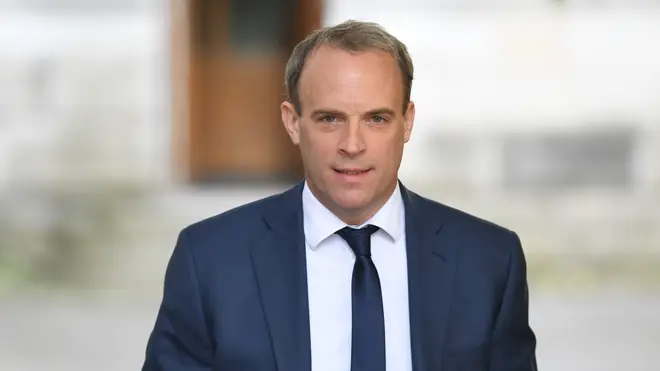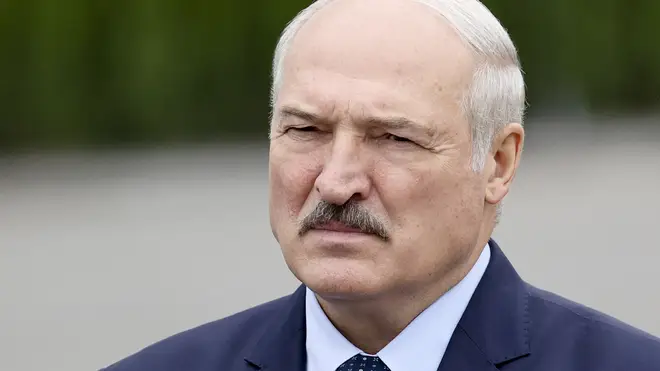
James O'Brien 10am - 1pm
29 August 2020, 20:16

Dominic Raab has condemned the Belarusian government's attack on media freedom after 50 journalists were detained.
The Foreign Secretary's comments come after authorities in the East European country detained some 50 journalists, including BBC personnel, on Thursday.
A number of journalists have had their accreditation to report in the country withdrawn.
Mr Raab Tweeted on Saturday: "The Belarusian authorities are continuing to target @BBCNews, local and international media by cancelling their accreditation to report in Belarus.
"This has been raised with the Belarusian Foreign Ministry. I condemn these clear attacks on media freedom #defendmediafreedom."
The east European nation has seen widespread protests since president Alexander Lukashenko was declared the winner of elections last week.

Police and protesters clash after Belarus presidential vote
Opposition figures insist the vote was rigged as Mr Lukashenko claimed election as president for the sixth time.
The BBC confirmed two of its journalists working for the broadcaster's Russian service in Belarus have had their credentials revoked.
A statement said: "We believe it is vital for the people of Belarus to have access to impartial, independent information about events in their country.
"BBC Russian, which reaches more than five million people a week, has been a major source of news for people in Belarus and Russia during the post-election unrest.
"We condemn in the strongest possible terms this stifling of independent journalism.
"We call upon the Belarusian authorities to revoke this decision and allow our journalists to continue doing their jobs."

President Alexander Lukashenko, who has ruled the nation in Eastern Europe with an iron fist since 1994, blamed the West for fomenting demonstrations in Belarus in hopes of turning it into a "bridgehead against Russia".
"They want to topple this government and replace it with another one that would ask a foreign country to send troops in support," he said. "They want our market to sell their products."
Nato has rejected previous such claims by Mr Lukashenko. Nato secretary-general Jens Stoltenberg said this week that the Belarusian leader tries to conjure up the image of outside forces threatening Belarus as an excuse for his crackdown on the opposition, which has seen hundreds of protesters beaten by police.
In addition, the idea that Belarus's ailing Soviet-style economy would be seen as a beacon for exporters seems to defy current economic realities. Protests have been fuelled by growing weariness about Mr Lukashenko's rule, his cavalier dismissal of the coronavirus pandemic and a bruising economic fallout from the outbreak in a country where living standards were already sinking.
The 65-year-old Belarusian leader has repeatedly sought to cast the protests that are demanding his resignation as part of a Western plot against Russia, in a bid to secure Moscow's support.
Russian President Vladimir Putin has warned that he stands ready to send police into Belarus if protests there turn violent but sees no such need yet.
The wave of protests that came after election officials declared Mr Lukashenko had won a sixth term in a landslide in the August 9 presidential election has cast an unprecedented challenge to his rule. Both the European Union and the United States have said the vote was neither free nor fair.
A fierce crackdown on peaceful demonstrators in the days after the vote left nearly 7,000 people detained, hundreds injured by police rubber bullets, stun grenades and beatings and at least three protesters dead, sparking massive outrage and forcing the authorities to back off. Police stopped interfering with the demonstrations for the next two weeks, but again began dispersing rallies over the past days, albeit without violence.
The Viasna human rights centre said 267 people, including scores of journalists, were detained when police broke up a rally of about 1,500 people on Minsk's main Independence Square on Thursday evening.
Some were released pending their appearance in court on charges of taking part in an unsanctioned rally. The Interior Ministry said 114 detainees were in custody on Friday.